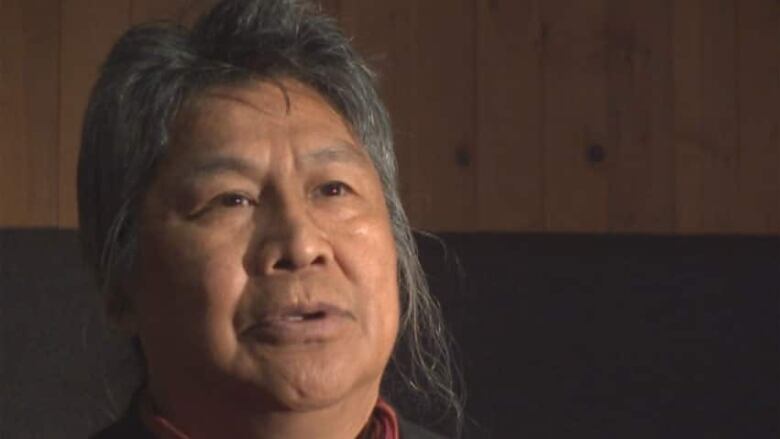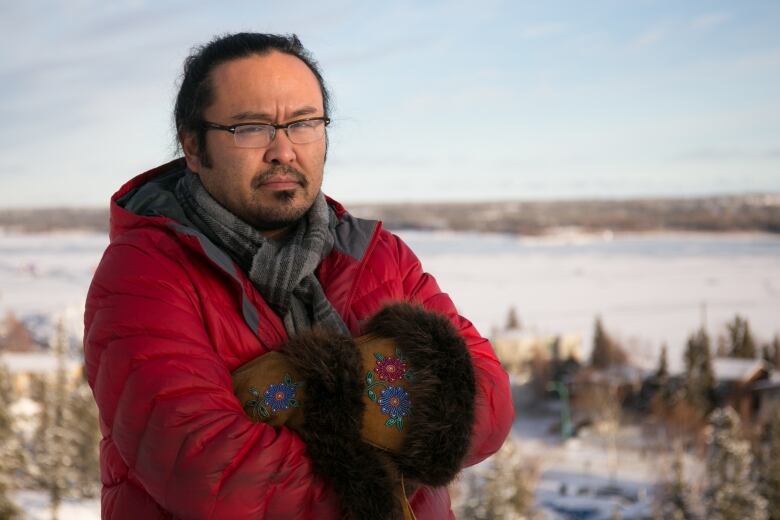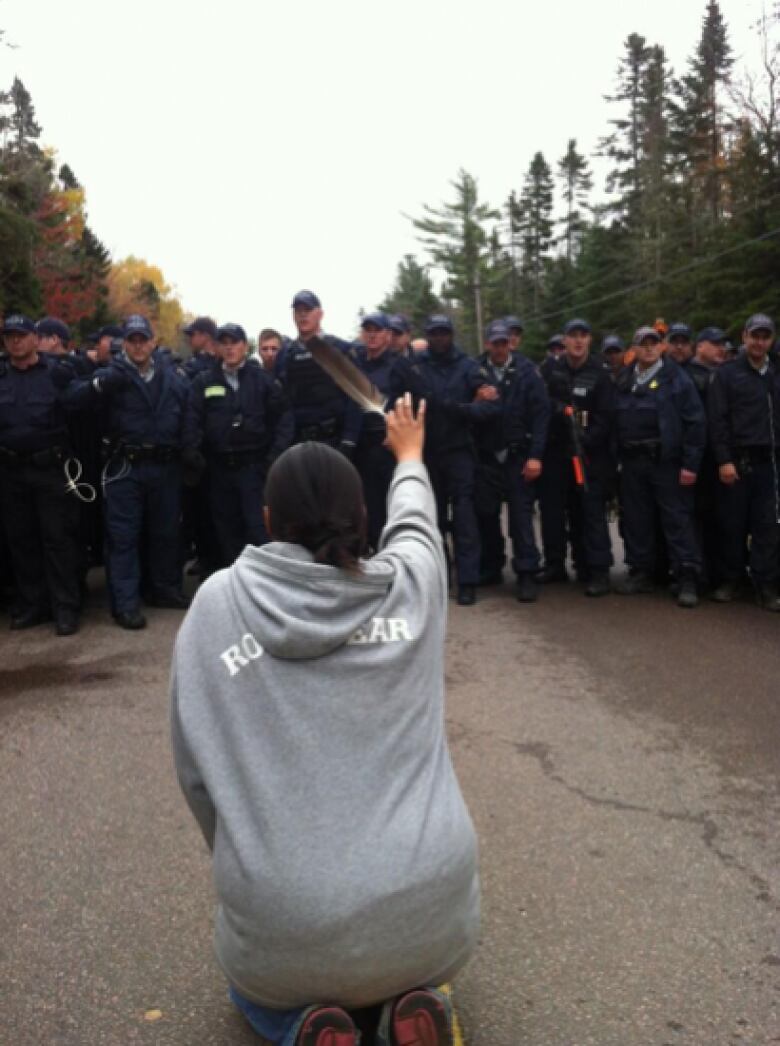'We've always been seen as a threat,' says former N.W.T. premier of RCMP surveillance revelations
Obtained RCMP documents show more than 300 Indigenous-rights activists investigated, 89 put on watch list

A recently revealed program of police surveillance across Canada is "alarming" and a "threat to our own security," says former Northwest Territoriespremier Stephen Kakfwi.
He's"not surprised," however, to hear that more than 300 Indigenous-rightsactivists, many of whom are Indigenous themselves, were investigated by RCMP as part of a surveillance program called ProjectSITKA,launched in 2014.
"We've always been seen as a threat since the '60s," says Kakfwi, the territory's premier from 2000 to 2003.
"I know that some of us were under surveillance in the Indian Brotherhood at that time, back in the early '70s. We had RCMP officers approaching us, talking to us.People taking pictures of us, recording us."

The documents Monaghan obtained reveal that RCMPcompiled a list of313protesters who were said to pose a threat to public safety. Eighty-nine of the activists were put on a watch list.
The names of those people, although redacted in the documents, were sent out to RCMP divisions across Canada to help them deal with "individuals and/or groups (Aboriginal and non-Aboriginal) willing and capable of utilizing unlawful tactics in association with Aboriginal public order events."
"There's a lot of surveillance going on in terms of social media and certainly Idle No More was under constant scrutiny. And of course everyone involved is constantly posting all this stuff," says Monaghan.
"I'm not surprised. Police are on high alert since 9/11... but it's still alarming because it is a threat to our own security... our ability to express ourselves," says Kakfwi.
'It's really counterproductive'
The former premier isn't the only Northerner concerned by the revelations.

"I think it's really counterproductive for Canada as theypromise to have improved relations with Indigenous peoples."
Nakehk'o doesn't consider himself an activist, so to speak. But that comes with caveats.
"You know if you are an Indigenous person alive today pretty much whether you like it or not youare going to be a political activist. Just the fact that you are alive means that is a form of resistance against all this colonialism going on."
He says he's concerned that "Canada reverts to police state surveillance, when we should all be working towards working together," but adds that he's not cowed by the recent revelations.
"It's not going to stop me from doing what we're doing here in the North through Dene Nahjo.'
Police Response
"When the RCMP is in receipt of information that indicates an individual or individuals are involved in a crime or may pose a threat to the safety and security of others, we are duty-bound to investigate. The RCMP did not specifically target Indigenous protestors," writes Cpl. Annie Delisle, Media Relations Officer for the RCMP.

AndProject SITKA does recommend the RCMPrefineits language.
"It is recommended that the RCMP move away from utilizing terrorism/extremism language to identify protest tactics that are specifically criminal in nature," says the report.
"Terminology such as militant and extremist are not defined with the Canadian Criminal Code and do not accurately portray these types of protesters."
That said, Kakfwi, in the wake of the revelations, wonders whether the RCMPmight have the whole thing backwards.
"Some of our people stand up to protect our land, wildlife, our way of life, our community against development and against business interests, industrial interests and people can be threatened," he says.
"When our people stand up and take a stand it evokes fear and outrage sometimes from other groups and individuals and we need protection. That's what police are for."
files from Loren McGinnis












_(720p).jpg)


 OFFICIAL HD MUSIC VIDEO.jpg)
.jpg)



























































































